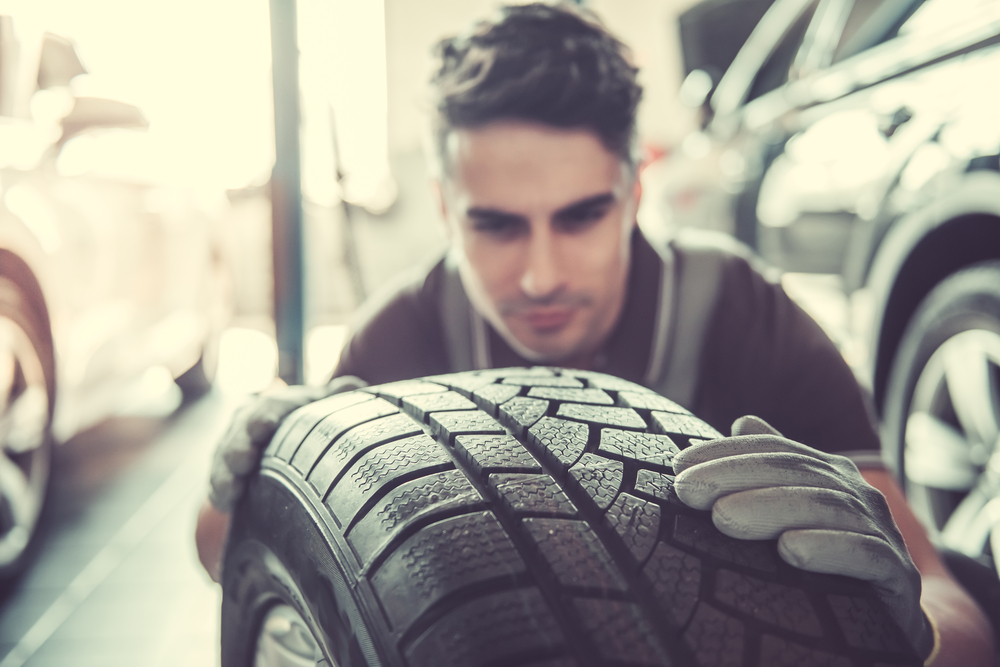What Happens if You Don't Rotate Your Tires? Uncovering the Risks

Do you rotate your tires? Do you even believe in rotating tires? For years there has been an ongoing debate on the value and even the necessity of tire rotation service. We are spending today's blog on this very topic to help you know what we believe and recommend.
Getting straight to the point, tire rotation is not just a recommendation; it's a vital part of your vehicle's maintenance. The team at Christian Brothers Automotive is here to explain the process of a tire rotation service, discuss how often it should be done, and present the risks of skipping this service.
What's Involved with Tire Rotation?
Tire rotation is a standard procedure that involves a series of steps performed by skilled mechanics to ensure that your tires wear evenly and perform optimally. Here's the general process:
- Assessment – Mechanics start by checking your tire's tread depth to assess the wear and tear. They also inspect for any signs of damage like cuts, bulges, or punctures.
- Removal – The next step is removing the tires from your vehicle. This involves loosening and removing the lug nuts and then lifting the car using a jack.
- Balancing Check – Once tires are uninstalled, a balance check can be performed. If a tire is unbalanced, it can cause uneven wear or vehicle vibration. Most shops, including Christian Brothers Automotive, charge an additional fee for the labor time and the weights needed for balancing tires. It's an optional service. If you feel a lot of sudden vibrations when you reach 60-70 mph, you probably have a tire imbalance issue.
- Rotation – This is where the actual rotation happens. Based on the vehicle's drive type (front-wheel, rear-wheel, all-wheel, or four-wheel drive), the tires will be moved in a specific pattern. For instance, the front tires may be moved to the rear and vice versa.
- Reinstallation – The tires are then reinstalled and securely fastened using the lug nuts.
- Air Pressure Adjustment – The final step involves checking and adjusting the tire pressure as needed to ensure optimal performance and fuel efficiency.
If you aren't aware, not all tire rotation services are the same. For example, some cars have rear wheels that are bigger than the front tires, and for those cars you cannot rotate front to back and vice versa. The good news is your mechanic will be aware of these things when performing your car's tire rotation.
Now that you know what is involved with a tire rotation service, let's discuss how often we recommend having this service performed on your car.
How Often Should Tires Be Rotated?
Generally, a good rule of thumb is to rotate your tires every 5,000 to 7,500 miles or alongside every oil change service, since the oil change and tire rotation intervals are very similar. However, always refer to your vehicle's owner's manual for the manufacturer's recommendations or the advice of your locally trusted mechanic.
The frequency of your tire rotation services may also be affected by a number of other factors like these.
- Driving Habits – If you're frequently driving on bumpy or uneven roads or carry heavy loads, your tires may wear out faster and require more frequent rotation.
- Type of Tires – Different types of tires wear at different rates. For example, performance tires may wear out faster than all-season tires and thus require more frequent rotation.
- Climate – In areas with extreme weather conditions (either hot or cold), tires can wear out more quickly. You may need to rotate your tires more often if you live in such an area.
Working with a local, trustworthy automotive service provider like Christian Brothers Automotive is the best way to ensure that your tires are rotated correctly and as frequently as necessary. Our trained technicians will be able to assess your vehicle's individual needs and recommend a unique tire rotation schedule tailored just for you.
Can You Rotate Tires Too Often?
While tire rotation is essential, rotating your tires too often is generally not advised. Over-rotation can lead to unnecessary wear and tear on the lug nuts and studs that hold your tires in place, potentially compromising your vehicle's safety.
Plus, tire rotation services often come with a cost, so excessively frequent rotations can lead to unnecessary expenses. And, if you do wear out or damage your lug nuts and studs, they can be expensive to replace, depending on the car. Stick to the recommended schedule provided by your vehicle's manufacturer or your trusted mechanic to promote the longevity and performance of your tires.
Since tire rotation is a good thing and since there are manufacturer-recommended intervals for completing this service, then what is the dark side of avoiding it?
What Happens If You Don't Rotate Your Tires?
If you neglect to regularly rotate your tires, you're inviting a host of potential issues. The biggest one is uneven tire wear. This contributes to poor fuel efficiency, poor handling, a decrease in the lifespan of your tires, and more.
Here are some of the most significant risks associated with not rotating your tires:
- Decreased Fuel Efficiency – Unevenly worn tires force your car to work harder, increasing fuel consumption. Over time, this can significantly raise your vehicle's operating costs.
- Poor Ride Comfort – Uneven tire wear can lead to vibration and a rough ride, negatively impacting your driving experience.
- Increased Risk of Tire Blowout – Worn-out tires are far more vulnerable to blowouts, potentially leading to dangerous situations on the road.
- Shortened Tire Lifespan – Tires that aren't rotated regularly may not reach their expected lifespan, causing you to replace them more often, which can be costly.
- Compromised Vehicle Performance – Uneven tire wear can affect your vehicle's performance, including acceleration, braking, and cornering capabilities.
- Increased Wear on Vehicle Components – Uneven tire wear can increase stress on other vehicle parts, including the suspension and braking systems, potentially leading to costly repairs.
Tire rotation service isn't just an upcharge during an oil change – it's crucial auto maintenance that should be performed at regular intervals to extend the life of your tires and keep you safe on the road.
Schedule Your Christian Brothers Automotive Tire Rotation
When it's time for a tire rotation, trust the experienced team at Christian Brothers Automotive! Our skilled mechanics will assess your vehicle's needs, factoring in tire wear patterns and driving habits, complete your tire rotation, and provide personalized advice on maximizing your tires' lifespan with future maintenance.
Rest assured we uphold a policy of complete transparency. No work will be performed until you approve the recommendations and the cost, and we'll always keep you informed about your car's condition along the way. With our expert technicians' attention to detail and commitment to exceeding your expectations, your vehicle couldn't be in better hands!
Find your closest Christian Brothers Automotive location and schedule your tire rotation service today!


[1].jpg)
sunwash-tech-with-customer.png)

